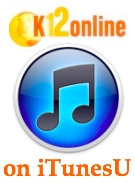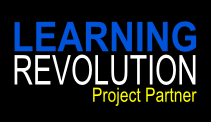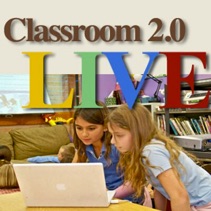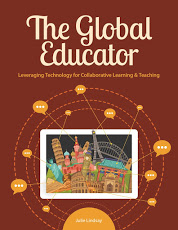Mark Wagner
Irvine, California, USA
http://www.edtechlife.com/
Presentation Title
“Wiki While You Work (Basic)”
Bio
A former high school English teacher, Mark has since served as an educational technology coordinator at Estancia High School, the Newport-Mesa Unified School District, and the Orange County Department of Education. He now serves as the president of the Educational Technology and Life Corporation, which provides professional development and consulting services to schools, districts, and other educational institutions. Mark has a masters degree in cross-cultural education. He is also working towards a PhD in Educational Technology at Walden University, and expects to complete his dissertation in early 2007.
Description
Wikis: webpages anyone can edit! Powerful collaboration tools for students and teachers, wikis can be used for individual and group projects, teacher and class webpages, professional development, and much more. This session briefly introduces participants to the Read/Write Web, and to wikis in particular. A live demonstration of wikispaces.org and wikipedia.org will illustrate that… “If you can use a word processor, you can use a wiki.” This will be supported by an overview of best practices and inspirational examples of actual student and teacher wikis. These will include wikis student wikis, group wikis, teacher wikis, class wikis, and wikis used for teacher collaboration and professional development. The session will leave participants inspired to take their next steps with educational wikis, whatever their level”¦ exploring wikis for the first time, ready to implement new best practices, or ready to innovate and lead the way. The session will include creation of a wiki that participants can use to collaborate following the end of the session
Presentation: Wiki While You Work
Supporting Links
http://wikiwhileyouwork.wikispaces.com/








Mark-
Fantastic!! I can not tell you how much I appreciated this workshop! I have been so intimidated by wikis, I would try but not fully understand how the who process worked. I created my class wiki space while sitting in my classroon until 7:00PM! I was enthralled!
Thanks so much!
Jennifer Cronk
Mark,
Thank you so much for your presentation. I loved your creativity and your guests. It gave an excellent tutorial on wikis and how to start one. I am an Instructional Technology Specialist in Massachusetts working in a K-4 school and will be working on wikis next week. Feel much more comfortable thanks to you!
Thank you again for all your work to creating this presentation,
Julia Colby
Mark,
You have done a wonderful job with both your presentations. I have been very interested in the use of these tools in education, but had very little knowledge of the workings. You sessions were clear and entertaining.
One question about the wikis: Are websites that are wikis clearly named, in their URLs as wikis? Many college professors, for example, will not allow students to use Wikipedia as a source for academic research since it can be modified so easily. I liked your analogy to peer review journals, but how can we teach students to be wise consumers of information presented on wikis or blogs?
Many thanks,
Thank you all for the encouraging comments, and Renee, thank you for the questions… here’s an attempt at addressing them:
The URLs of some wikis are clear, such as anything at wikispaces.com, pbwiki.com, or the wikipedia… but this is not necessarily true. For instance, supportblogging.com is actually a wiki. So I suppose users will have to learn to recognize a wiki – primarily by the presence of something like the “Edit This Page” button and the “History” of revisions. I’ve actually known students to track down changes made to a wikipedia article by a certain user, find their changes to other articles and notice a malicious trend such that they reversed the changes of that user. This can be a great (and empowering) process for some students, but I can easily see how it can be overwhelming for students who are not ready for it. Like anything else, I suppose we’ll have to meet students where they are at and move them forward one step at the time… of course, we’ll also have to do the same with a lot of educators. 😉
-Mark
Pingback: The Read/Write Web: RSS, Blogs, Wikis, and Podcasting at Learning Blog
Pingback: Educational Technology and Life » Blog Archive » Feedback on the Wiki While You Work video
Helping Students Education is a non profit education information services organization that has designed wiki processes and wikis for school districts and teachers. The wikis are navigated by state and includes over 12,000 pages of parent, student and teacher resources.
Secure teacher wikis are available for all teachers as a free public service.
Join A K12 Teacher Wiki discussion group at http://www.tappedin.org to learn more.
K12 Teacher Wikis
http://helpingstudents.org/JSPWiki
Mark,
Thank you for the complete tour of wikis. Throughout the session I kept thinking about the spam that wikis are exposed to being on the ‘net. I was glad to hear you address this in your presentation.
My question though, “How do you sell parents and educators on wikis when at any point they can check it out and find spam that can sour their adaption of the tool?”
Pingback: Notes from Millie D » Hi, Ho, Hi, Ho…Wiki While You Work
Pingback: » Blog Archive » Episode 11: Taking it Further
Do you know if their will be a conference in 2008?
Best,
dean
I am still trying to get started with my Wiki. I am looking at wikispaces, and observing tutorials ,but still feeling overwhelmed. Any suggestions would be most appreciated.
I am interested in using a wiki in a work situation. I work for a special collections library in the Exhibits department, and we would like to implement the wiki with our department to streamline what needs to be done ,and to cut down on endless email, and lastly, to learn this new feature. But honestly, is a wiki something that should be used in this case?
Please help!
Pingback: September 26 K12Online Conference LAN Party « Kim’s Ventures in Educational Technology
Pingback: » Blog Archive » VSR11: Taking It Further
Pingback: The Read/Write Web: RSS, Blogs, Wikis, and Podcasting « Alex Ragone's Learning Blog